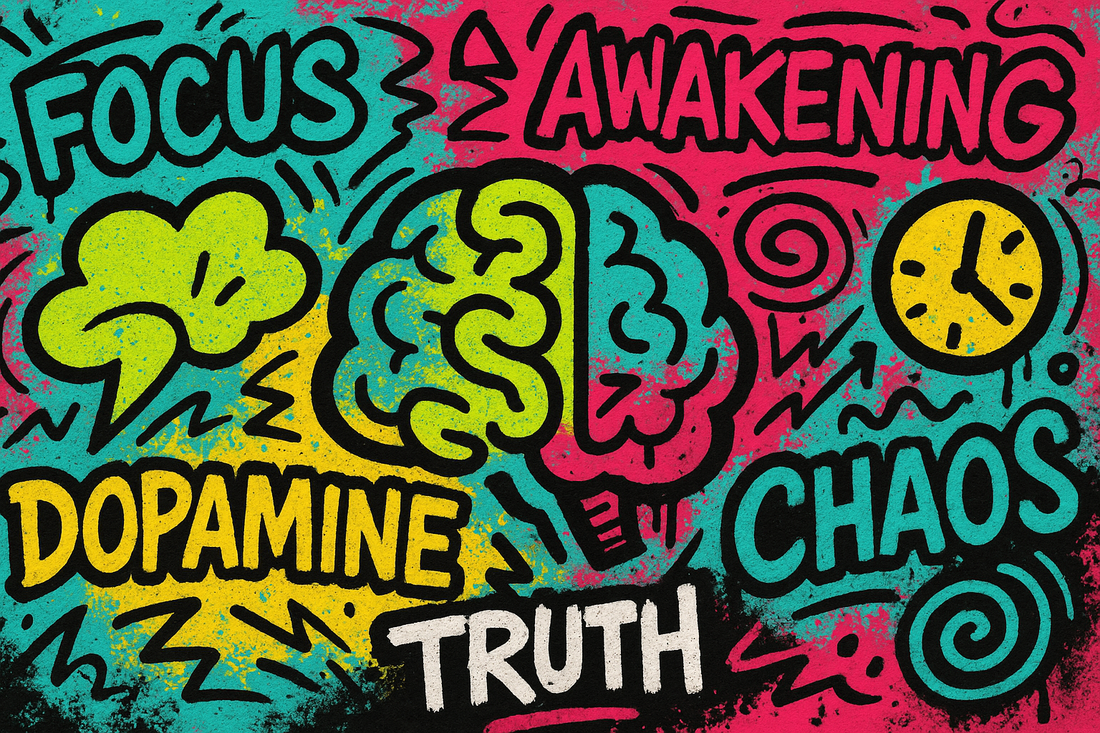
Intuition And Depravation
Share
Ever feel like you have to cut out all the “fun stuff” to achieve success? I get it. For a long time I believed that slighting myself was the only way to move forward, but it left me drained and unmotivated.
In today’s episode, I explore how my dyslexic and ADHD mind manages health and well-being. Spoiler: it’s not about constant sacrifice. I share how shifting away from all-or-nothing thinking has helped me stay on track. Let’s dive in.
Challenging the Myth of Deprivation
I used to think success meant rejecting anything that smelled of indulgence. If it felt too good, I’d assume it was wrong. This approach made me believe I was being responsible, yet it left a giant gap in my motivation.
“I thought depriving myself would guarantee results, but it just made me dread each day.”
Eventually, I realised that a life of constant denial wasn’t just unpleasant—it didn’t deliver real success. My dyslexic and ADHD tendencies crave variety. If you’re anything like me, you probably need a good dose of flexibility to feel energised.
How Dyslexia and ADHD Influence Our Choices
I sometimes joke that my ADHD is the reason I start so many new projects, while my dyslexia keeps me looking at ideas from unusual angles. That’s not a bad thing. It can be an advantage when dealing with wellness, because we’re wired to spot creative solutions.
When it came to my health, though, I found that simply telling myself “don’t do this” or “don’t eat that” didn’t cut it. My brain needed clarity and fun—not just rules and regulations. Over time, I discovered that healthier routines are easier to maintain when they feel less like restrictions and more like opportunities. It might mean trying new recipes or finding workouts that don’t make me groan.
Adapting Healthy Habits
One of the biggest lessons I’ve picked up is that small shifts can lead to big changes. Instead of banning your favourite foods, look for nutritious swaps or better portion control. If you’re not keen on the word “diet,” focus on sustainable meal choices.
Here are a few practical tips I’ve found helpful:
- Experiment with quick home-cooked meals that are faster than takeaway.
- Choose mild exercise over intense workouts if you prefer gentler movement.
- Track progress with simple notes—great for dyslexic minds that juggle ideas visually.
Nobody’s telling you to go run a marathon tomorrow, especially if that’s not your style. Work with your unique thinking patterns and keep things fun.
Tuning in to Your Inner Signals
Another aspect that helped me was learning to listen to my body’s signals. Dyslexia and ADHD can sometimes mask physical cues when too many thoughts are racing around. By slowing down occasionally, I started to notice when I was overstressed or physically run-down.
This meant developing a loose routine that included short breaks. I’d stretch, take a quick walk, or do some light movement. Once I started prioritising this, everything else became more manageable. Who knew that five minutes away from the computer could clear so much mental fog?
Building Balance Without Burnout
The biggest takeaway from this episode is that balance doesn’t have to be extreme. I’m finally at peace with the fact that a chocolate bar won’t derail my entire wellness journey. Making room for both discipline and enjoyment feels a lot healthier for my mind—maybe you’ll find it works for yours too.
Give yourself permission to experiment. Break a few old rules if they don’t serve you anymore. We’re each wired differently, and that’s okay.
Key Takeaways
- Avoid extreme rules—use flexible guidelines instead.
- Stay open to discovering new ways to stay energised.
- Prioritise short movement breaks for clearing mental clutter.
- Do what supports your unique mind, not what society says you should do.
If this resonates with you, I encourage you to listen to the full episode (the player is at the top of the page). You’ll hear even more about my personal journey and how these ideas might help you unlock better health without depriving yourself of the things that light you up.

